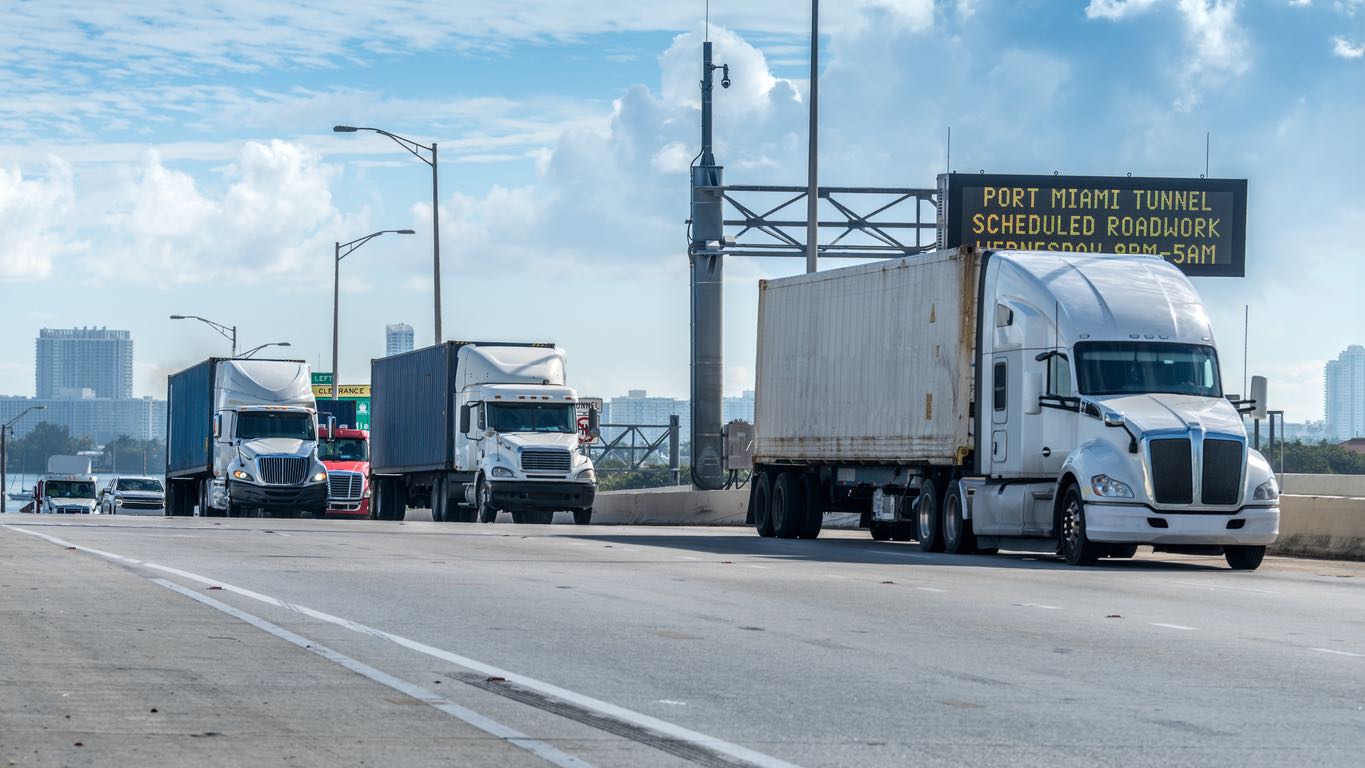The automobile stands as a symbol of freedom and the country’s love of the open road in the vast expanse of the American landscape. But as the years pass, a growing worry for both car enthusiasts and regular drivers alike looms large: the rising costs of transporting these cherished vehicles across the nation. Transporting cars has become a crucial aspect of the American way of life, from the crowded streets of New York to the golden highways of California. However, a car’s trip from one state to another involves more than just the distance it travels; it also involves a complex web of variables that affect the cost of the trip.
Over the past few decades, the U.S. car shipping industry, an important part of the country’s economic machinery, has undergone a number of changes. A confluence of economic, technological, and geopolitical events has shaped these changes, both subtle and seismic. Rising fuel costs, changes in the labor market, and changes in policy have all contributed to the complex picture of an industry in transition. The foundations of this industry must be understood as consumers struggle with these rising costs. It involves navigating the complex dance of supply and demand, global events, and technological advancements, not just getting from point A to point B.
This investigation delves deeply into the core of the American auto shipping industry, illuminating the complex factors that contribute to the rising costs. We set out on a journey to unravel the tale of an industry that, like the cars it transports, is constantly in motion, from the ebb and flow of the global oil markets to the digital revolution reshaping customer experiences. Join us as we explore the challenges, successes, and future of car shipping as we travel the highways and backroads. 
For many people, the freedom of the open road has always been a key component of the American dream. A beloved ideal is the allure of a personal vehicle, ready to take its owner on journeys across the vast landscapes of the United States. But as the years have gone by, the steadily rising costs of shipping these vehicles across state lines have cast a shadow on this dream. Shipping cars has become a necessary but increasingly expensive task, whether it’s a family moving for new opportunities, a car enthusiast buying a vintage model from a far-off state, or dealerships moving inventory.
This financial improvement has been attributed to a number of connected factors. Shipping costs are heavily influenced by the erratic dance of gas prices, which is influenced by world events and market dynamics. On a different front, the industry struggles with labor issues, particularly the lack of experienced carriers, which directly affects how much transportation costs. Additionally, policy alterations that are frequently made with safety and standardization in mind unintentionally increase the cost of shipping. For consumers, these rising costs are more than just numbers; they stand for the real difficulties in remaining mobile in a constantly changing economic environment.

- Historical Analysis: The cost of gasoline has significantly increased, from $1.54 per gallon in 2003 to $3.67 in 2023.
- World Dynamics: Fuel prices consistently increased in the 2000s as a result of rising demand from China and India as well as geopolitical unrest in areas with abundant oil supplies.
- Most Recent Changes: Gas prices spiked dramatically in the 2020s, primarily as a result of sanctions against Russia and reduced oil refining capacity.
- Quality Prioritizes Quantity: There are plenty of carriers and brokers, but the industry struggles with a lack of seasoned ones.
- Impact on Insurance: Car shipping trailer accidents can result in astronomical insurance costs.
- Selecting the Best: It is advisable to look for car shipping companies (both carriers and brokers) with stellar ratings on review sites like Google, Trustpilot and the BBB.
- Metric Conversion Policy of 1992: This policy altered the number of cars that could be transported on a given trip by redefining the legal dimensions for auto transporters.
- ELDs (Electronic Logging Devices): ELDs were introduced in 2019, and while they increased operational costs, they also increased driver safety.
- Statistical Perspectives: Over 16% more money was spent on truck transportation between 2019 and 2022.
- Compare and Contrast: From 2020 to 2023, the price of shipping a car increased by 10%.
- Business Giants: Companies like FedEx and Amazon have increased their prices as well, reflecting the general trend of inflation.
- Meeting Challenges Head-On: Companies are readjusting their strategies, putting an emphasis on efficiency and cost-cutting, to combat rising costs.
- Increase in Providers: The number of car shipping companies has increased dramatically over the last few decades, which has heightened competition.
- Digital Transformation: The car shipping process has been transformed by the internet, from instant quotes to online tracking.
- Future Prognoses: Even though precise future rates are uncertain, important factors like gas prices and industry competition will be important.
- Smart Decisions: Consumers should compare prices across providers to ensure cost-effective solutions in the face of rising costs.

Similar to the vehicles it transports, the car shipping industry has undergone constant evolution. It has negotiated the bumpy terrain of international geopolitics, the arduous ascents of economic difficulties, and the quick accelerations brought on by technological advancements over time. These changes have altered not only the way in which the sector operates but also the experiences of the many customers who depend on these services. It becomes clear that adaptability and resilience have been the guiding principles of this industry’s journey as we think back on the numerous factors that have influenced it.
The future’s path is fraught with uncertainty. The world is a dynamic place, and the reverberations of events in other parts of the world frequently make their way to the center of the U.S. car shipping market. But knowledge has power, even in the face of uncertainty. Understanding the complexities of this industry for consumers is like having a road map for the future. They can anticipate the twists and turns that lie ahead and make informed decisions, ensuring a smoother ride in the dynamic world of car shipping, by remaining knowledgeable and adaptable.

A Dedication to Excellence: The Advantage of Ship A Car, Inc. It can be difficult to navigate the complicated world of auto shipping, but Ship A Car, Inc. stands out as a dependable leader in this field. Their commitment to making sure that shipping goes smoothly is a guarantee, not just a promise. They’ve mastered the art of moving vehicles with accuracy, care, and the utmost professionalism thanks to their years of experience.
Why they are the Best and What Distinguishes Ship A Car, Inc. from the Competition? They are steadfastly committed to excellence in all facets of the transportation industry. They offer shipping services for a variety of vehicles, including trucks, motorcycles, and heavy hauling equipment in addition to shipping cars. Their wide-ranging connections and in-depth knowledge of the logistics involved guarantee that every vehicle, whether a heavy-duty truck or a classic car, is handled with the same degree of care. Timely deliveries, affordable prices, and a staff that genuinely cares about your satisfaction are all advantages of choosing them.
Take the Next Step Confidently You don’t need to look any further if you’re looking for a reliable vehicle shipping partner. Contact Ship A Car, Inc. right away. Their team is prepared and eager to help, making sure your car gets to its destination quickly and safely. Don’t take chances; leave it in the hands of the professionals. Use their online contact form to get in touch with them, or call (866) 821-4555 to speak with a knowledgeable transport coordinator right away. Here is where your path to trouble-free vehicle shipping begins.
- Why have car shipping costs surged in recent years? The rise can be attributed to multiple factors, including escalating gas prices, labor shortages, and policy changes.
- How has the internet impacted the car shipping industry? The digital age has streamlined the car shipping process, offering tools like instant quotes, online tracking, and marketplaces for better customer experiences.




